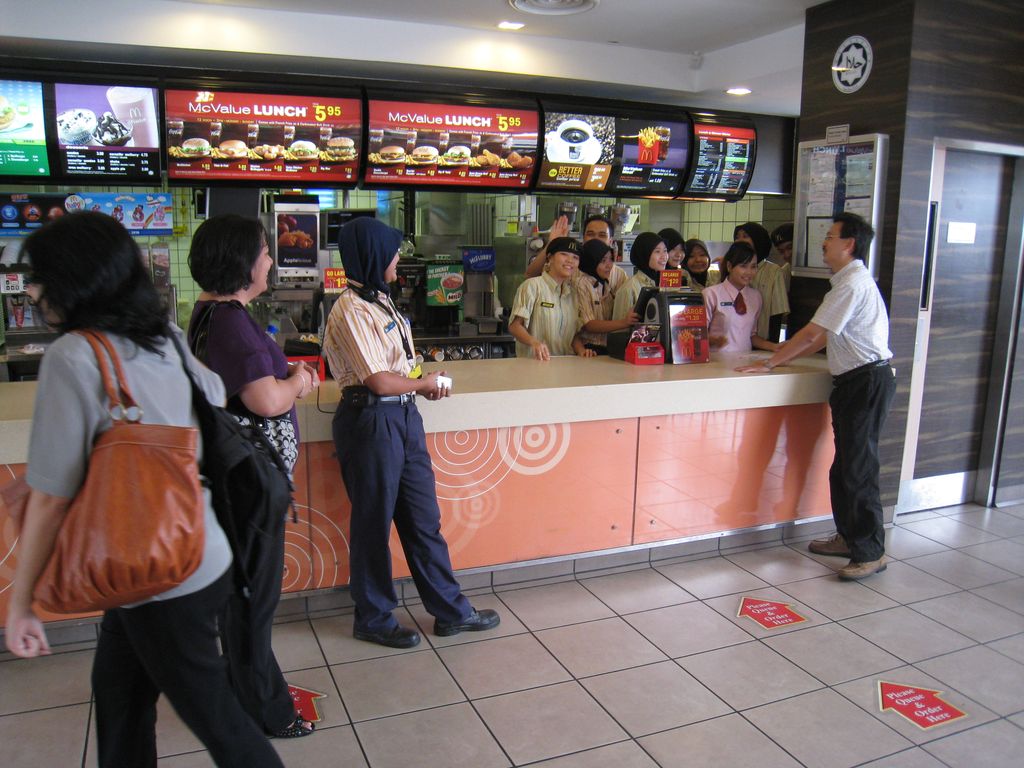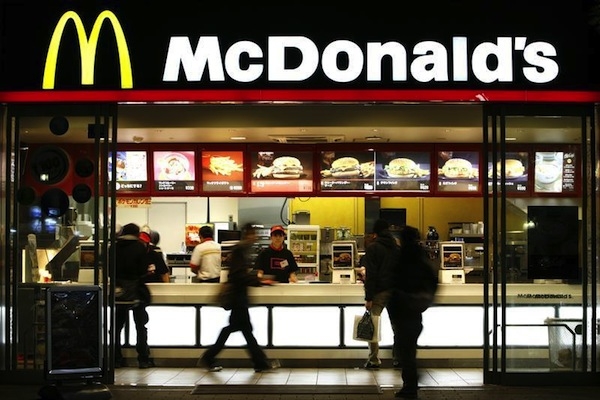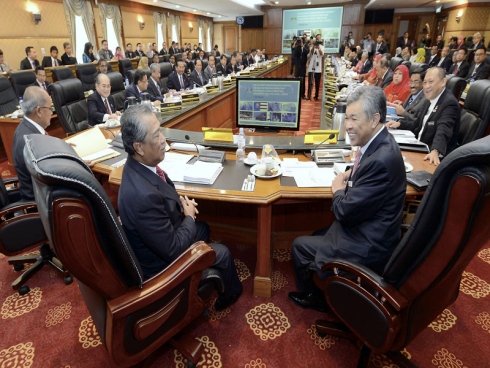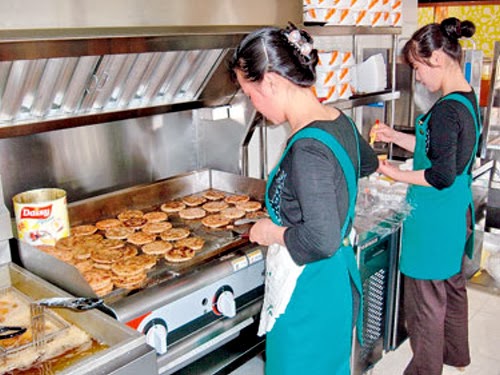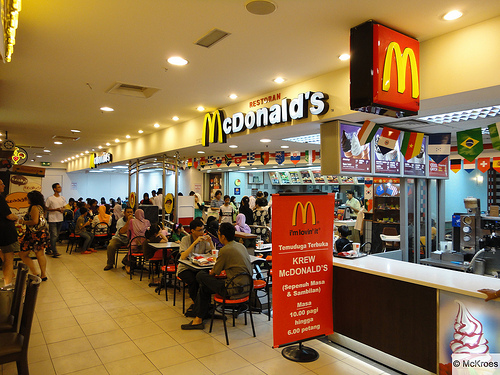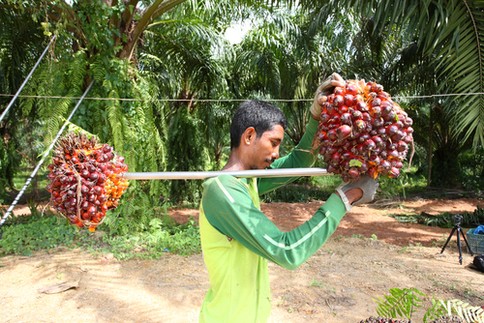KFC And McD's Are Not Allowed To Hire Foreign Workers Anymore
In a move to provide more job opportunities to Malaysians, the government has issued a ruling that bans fast-food restaurants from hiring foreign workers.
A Fast-Food Joint Manager Tells Why They Don't Like To Hire Locals To Work
A manager of a [fast-food] outlet in Kuala Lumpur, who declined to be named because of company policy, said Malaysians were choosy and pampered.
“They are too demanding and difficult to work with,” she said, adding she had yet to encounter problems with foreigners.
“Most of them whine a lot and object to almost everything. For example, they are reluctant to put in the extra hours.” Recalling her experience working with Malaysians, the manager said one “went missing” after an hour on the job while another did not return after the lunch break.
yahoo.comThe manager takes charge of seven workers, including four foreigners. All workers in the outlet were responsible for preparing food, servicing customers and cleaning the eatery.
“We would not simply hire foreigners. We adhere to set regulations to avoid any issues,” she said.
yahoo.comIf the new ruling came into effect, it would hurt some establishments in the industry as it would be difficult finding Malaysians to replace foreigners.
“We will be caught in a dilemma if the policy is introduced,” she said.
She hoped decision-makers would study the feasibility of the ruling and speak to operators and even managers before making a final decision.
“It is easy to make decisions from the comfort of a meeting room. It would be nice if decision-makers spent time observing how we work before coming up with new rulings,” she said.
How Do Foreign Workers Feel About The New Ruling That Restricts Them From Working At Fast-Food Joints?
Foreign workers employed at fast-food restaurants were not moved by the new policy restricting fast-food operators to only hiring Malaysians.
However, they hoped they would be given other opportunities once the policy kicked in.
Bangladeshi Mohd Rafialisime, 26, who works at a Burger King outlet at 1Utama, said: “I don’t mind working anywhere else if given the chance.”
His colleague, Foresh Natish, 49, said he could return to Bangladesh if things did not work out in Kuala Lumpur.
“I can go back and help my dad run his eatery,” he said.
But Foresh, who has been in Malaysia for the last three years, did not mind working in a factory or any other sector so he can send money to his family.
“The ringgit is stronger than our currency, so it would make more sense to work here and send money home,” he said.
Vietnamese Han Dong, who has been working at a fast-food restaurant in Jalan Mesjid Negeri in George Town, Penang, for the past six months, said he was concerned about the government decision to bar foreigners from working in fast-food outlets.
“I do not know what will happen if I am no longer allowed to work here,” said Han, 19.
yahoo.comWhat Do Foreign Workers Feel About The New Ruling That Restricts Them From Working At Fast Food Joints?
Image via themalaymailonline.comFast-Food Restaurants Are Not Allowed To Hire Foreign Workers Anymore, According To The Cabinet Committee On Foreign Workers And Illegal Immigrants
Fast Food Restaurants Are Not Allowed To Hire Foreign Workers Anymore, According To The Cabinet Committee On Foreign Workers And Illegal Immigrants
Image via sinarharian.com.myFast food outlets in the country will no longer be allowed to hire foreign workers, said the Cabinet Committee on Foreign Workers and Illegal Immigrants.
The statement did not mention when the ruling will take affect.
The ministry acts as the secretariat for the Cabinet Committee on Foreign Workers and Illegal Immigrants.
The decision was made during the committee's meeting here, chaired by Deputy Prime Minister Tan Sri Muhyiddin Yassin.
thestar.com.myThis Move Is To Give Priority And Opportunities To Malaysians Who Are Interested In The Fast-Food Industry
This Move Is To Give Priority And Opportunities To Malaysians Who Are Interested In This Industry
Image via blogspot.comThe decision is to give priority to Malaysians to take up the job, the ministry said in a statement Tuesday.
thestar.com.my“The government views the matter seriously and fast-food concept restaurant operators have been urged to employ locals who are still interested in working at such places, it said.
Why Specifically Fast-Food Outlets? The Committee Says It Is Because Locals Are Still Interested To Work In This Industry.
"The operators are not allowed to hire foreign workers because many locals are keen to work in fast-food restaurants.
"The growing interest among local job-seekers can be attributed to the less demanding cooking skills needed in fast-food outlets.
“Many locals are still interested to work in fast-food restaurants. Cooking skills needed in fast-food outlets are not as demanding as in restaurants and can be easily learnt through training.
“As such, the jobs are preferred by locals, especially youths, school-leavers and university students, to gain experience in the food and beverage industry and as a source of income, either on a part-time or full-time basis,” it said in a statement after the meeting.
This Ruling Includes Facilities Like McDonald's And KFC, But Does Not Apply To Food-And-Beverage Outlets Like Kopitiam Or Starbucks
Domestic Trade and Consumer Affairs Ministry's communication unit had defined a fast-food outlet as a business facility preparing fast-food services, such as McDonald's, Burger King and KFC. This classification does not apply to food-and-beverage outlets that hired waitresses, such as Kopitiam or Starbucks.
Why Specifically Fast Food Outlets? The Committee Says It Is Because Locals Are Interested To Work In The Fast Food Industry.
Image via staticflickr.comThere Had Been Applications By Fast Food Operators To Employ Foreigners But They Were Rejected By The Government
It is learnt that there had been applications by fast-food operators to employ foreign workers but these were rejected by the government.
Malaysia relies heavily on foreign labour in the restaurant, construction, garbage collection and gardening sectors as its citizens have not been keen to take up these jobs.
Most workers in these sectors are sourced from India, Indonesia, Bangladesh, Pakistan and Cambodia.
At The Same Time, The Government Agrees To Allow Bangladeshis To Enter The Country To Work In The Oil Palm Sector
On a separate matter, the committee agreed to extend the government to government mechanism between Malaysia and Bangladesh, devised to fill vacancies in the oil palm sector, to Sarawak.
This after the initiative had a positive impact on the industry in Peninsular Malaysia.
The Sarawak state government had since last year looked to Bangladesh as an alternative source for foreign manpower to sustain the oil palm industry because it was getting more difficult to get Indonesian labourers due to the industry's robust development in the republic.
At The Same Time, The Government Agrees To Allow Bangladeshis To Enter The Country To Work In The Oil Palm Sector
Image via eco-business.com